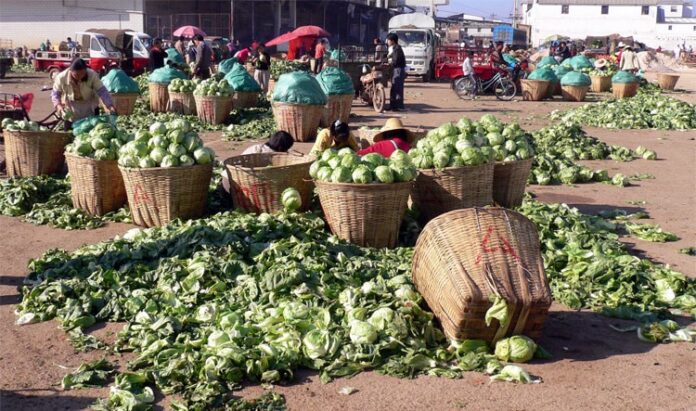Nigeria suffers N3.5tr post harvest loss amid severe hunger in the North
By Jeph Ajobaju, Chief Copy Editor
Nigeria, where millions of citizens are on the brink of severe hunger, particularly in the North afflicted by terrorism, has been officially pronounced as losing N3.5 worth of agricultural produce after harvest yearly.
Between 50 and 60 per cent of fruits and vegetables alone are lost.
Agriculture and Rural Development Minister of State, Mustapha Shehuri made the disclosures at the presentation of the International Standard Organisation (ISO) Certification for Nigerian Stored Products Research Institute in Abuja.
“Post-harvest losses are a worrisome situation that threatens Nigeria’s Food Security, said Shehuri, represented by the ministry’s Lands and Climate Change Management Services Director, Shehu Bello.
“In fruits and vegetables, it could be as high as 50-60 per cent if poorly managed, unfortunately not much attention is paid to address this problem as much as it is done for production.
“The economic cost of post-harvest losses as reported by our partner, Action Aid, indicates that N3.5 trillion is lost annually due to post-harvest losses. This has a negative effect on agricultural component of Gross Domestic Product (GDP).
________________________________________________________________
Related articles:
Nigeria budgets N875b for agric, imports N8tr food
Nigeria’s North East close to severe food shortage
Nigeria has highest malnutrition rate in Africa, second highest globally
__________________________________________________________________
Laboratory for quality management
Shehuri added that ISO 1705 accreditation is proof the ministry has a laboratory fully equipped for quality management system, with the ability and competence to provide testing and calibration results, per Nairametrics reporting.
“Let me also remind you that this accreditation is not for life and could be withdrawn for any stretch of sub-standard practice, hence the institute must sustain, maintain, and improve on the service delivery.
“The Federal Ministry of Agriculture will continue to support and ensure that this institute and indeed other research institutes are regularly funded to execute their mandates.”
Agricultural output
Agricultural production grew 3.16 per cent year-on-year (YoY) in real terms in the first quarter ended March (Q1 2022) but it was a decrease of 0.42 per cent points from 3.58 per cent in Q4 2021.
It rose 11.55 per cent YoY in nominal terms in Q1 2022, a drop of 3.59 per cent points from Q1 2021.
Agriculture contributed 22.36 per cent to overall GDP in real terms in Q1 2022, higher than 22.35 per cent in Q1 2021 but lower than 26.84 per cent in Q4 2021.
Finance Minister Zainab Ahmed in June disclosed plans to invest heavily in all aspects of the agricultural value chain to ensure adequate and quality data for successful policies in the sector.
She said agriculture is important to the government, which made it to invest huge sums in it since 2015 to raise output and meet demand for both domestic consumption and export, as well as for jobs.












